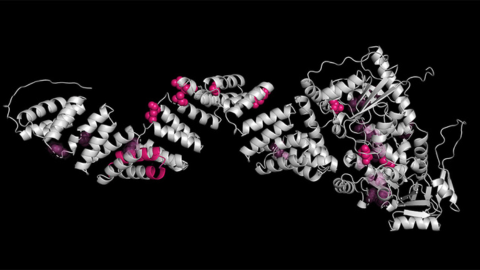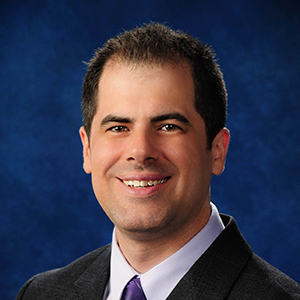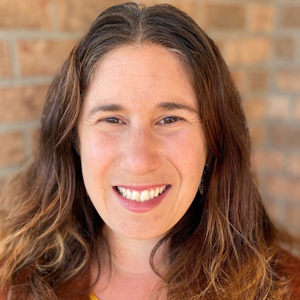How do we know what students know?
When the American Society for Biochemistry and Molecular Biology began accrediting undergraduate biochemistry and molecular biology programs in 2013, no one knew quite what to expect. Would colleges and universities be interested? What would they want from such a program? Could the ASBMB support accreditation? How would we assess student outcomes? Who would write the questions and score the exam?

In the decade since we started, we’ve gotten answers to some of these questions — and we’ve started to ask new ones: How can we attract more educators to support this program? And how can we ensure that these educators reflect and represent students and schools in historically marginalized and underserved communities?
We’re working on answering those questions now — but first a bit of history.
The ASBMB offers its accredited undergraduate science programs the option of certifying students’ BMB degrees based on proficiency on a national certification exam. The exam assesses students’ skills and knowledge in four core concept areas. It has been offered at more than 90 programs over the years, and more than 1,000 students took the exam in spring 2022.
To create, administer and score the exam, the ASBMB has relied on more than 100 volunteers from its education community. We are three of those volunteers.
With funding from the National Science Foundation, workshops were held around the country to identify our four foundational concept areas. Workshop participants and organizers — and other BMB educators — convened in the early 2010s to draft the first ASBMB certification exam. We decided the exam should include just a few critical-thinking questions — some multiple-choice, some open-ended — that covered the four core concept areas.
As the program grew, we needed more help writing a new exam each year as well as pilot questions for subsequent exams. We realized that anyone writing questions for the exam would need to be trained. The ASBMB hosted ad hoc training sessions at its annual meetings and summer education meetings to meet the rising demand. After several years, we knew there had to be a more sustainable way.
The solution was a workshop series on developing assessment questions.
A pilot in Georgia
Over the years, question writers and exam scorers often praised the rich collegial network that grew up around working on these assessment. They also noticed that, by extension, their own classroom assessment practices had transformed. Seeing opportunities to expand this community and transform undergraduate education, we planned a two-day workshop to pilot a program focused on learning how to create BMB assessments.
As we debated where to hold this workshop, we realized our existing community was remarkably homogeneous. Most of us work at colleges and universities where the students and faculty are primarily white. Thus, we had to reckon with the fact that our certification exam replicated the homogeneity of our community, which had led to homogeneity in our leadership.

from a given institution (1, 2 or 3). Color indicates characteristics of the institution (red: historically Black college
or university, or HBCU; blue: Hispanic-serving institution, or HSI; yellow: primarily white institution, or PWI). One
participant from a PWI in Alaska is not shown. Montclair State University in New Jersey, which participated in both the July
2020 and January 2022 workshops, is represented by an unfilled circle to highlight that distinction.
To write an inclusive national certification examination, we needed to intentionally engage colleagues who look like our increasingly diverse BMB student body and who teach at institutions that serve student populations who are historically underrepresented in BMB. We needed to begin with our workshop.
We asked Kim Cortes at Kennesaw State University in Georgia, a state rich with historically Black colleges and universities, to be our inaugural host. The pilot workshop drew 28 participants from 21 institutions, more than half of which enroll a significant percentage of students from historically marginalized groups, with 68% of the participants teaching at what are referred to as minority-serving institutions.
In follow-up surveys, 92% of respondents said the workshops increased their confidence in writing high-quality assessment items. And all respondents said the workshop promoted an inclusive environment where everyone was encouraged to participate.
We are now building on that success.
Building an inclusive community
We now have a five-year NSF grant to launch Inclusive Community for the Assessment of Biochemistry and Molecular Biology Learning, or ICABL, a series of workshops intended to build a diverse network of BMB scientist–educators who prioritize high-quality assessment. Focused on undergraduate education, ICABL is committed to using evidence-based methods to develop assessments.
Our workshops provide participants with ideas and tools to design assessments that effectively evaluate students’ mastery of defined learning objectives. The three-part workshop series, which may be taken in any order, addresses summative, formative and alternative assessment. Topics include principles of question development, Bloom’s taxonomy, inclusive pedagogy and backward design. We offer these workshops in a mix of virtual and in-person formats.
We are working to expand our network into communities that are historically underrepresented in BMB education leadership. Including participants from minority-serving institutions is not enough. The ICABL workshops are an opportunity to bring diverse perspectives into leadership positions. Engaged workshop participants are recruited into mentored leadership positions within the network. In this way, we hope to transform leadership in the BMB education community to reflect the identities of all students in our classrooms.
Since the summer 2020 pilot, ICABL has hosted three workshops with 62 total participants. Of these, nearly 60% teach at Hispanic-serving institutions or HBCUs. Several participants already have moved into leadership roles. Jennifer Bobenko, who teaches at the University of Maryland Eastern Shore, an HBCU, describes her experience:
“Beyond the significant and immediate impact the workshop had on my teaching practice, the ICABL team continues to provide networking and professional development opportunities to me. The opportunity to co-host an assessment workshop with the ICABL team, serve on the ICABL Steering Committee and become a member of the ASBMB Certification Examination question writer/grader community have truly been rewarding.”
BMB education is a global endeavor; therefore, assessment conversations also must include international partners. For our next step forward, in collaboration with the International Union of Biochemistry and Molecular Biology, ICABL will offer virtual workshops to help build a global BMB education community focused on assessment. We look forward to the first international ICABL workshop, to be held in 2024 following the IUBMB Congress in Melbourne, Australia.
We invite all BMB educators to apply to attend one of our workshops. We especially encourage applications from colleagues working at minority-serving institutions and those who embody diverse identities that historically have been underrepresented in STEM. By contributing your voice, you will help grow and enrich the BMB education community so that it reflects the variety of institutions and individuals in BMB programs and classrooms.
Kim Cortes, who works as co-PI on the ICABL grant, contributed to this article.
Attend a 2023 workshop
This year, ICABL will host three workshops for BMB educators interested in developing their use of assessment to support deep and inclusive learning:
- February 11 – 12. Thinking beyond exams: Creative ways to gauge student learning, at North Carolina Central University, Durham, North Carolina.
- March 24. How did I do? Using summative assessment to inform teaching efficacy, in conjunction with Discover BMB 2023, Seattle University, Seattle, Washington.
- Summer 2023. Building student success through formative assessment, location to be determined.
Accommodations, meals during the workshop and travel expenses (up to $400) are provided. Participants who attend an entire workshop and complete accompanying assignments will receive a $200 stipend.
For more information and to apply for a workshop, email us at info@icabl.org.
Enjoy reading ASBMB Today?
Become a member to receive the print edition four times a year and the digital edition monthly.
Learn moreFeatured jobs
from the ASBMB career center
Get the latest from ASBMB Today
Enter your email address, and we’ll send you a weekly email with recent articles, interviews and more.
Latest in Careers
Careers highlights or most popular articles

Upcoming opportunities
Friendly reminder: May 12 is the early registration and oral abstract deadline for ASBMB's meeting on O-GlcNAcylation in health and disease.

Sketching, scribbling and scicomm
Graduate student Ari Paiz describes how her love of science and art blend to make her an effective science communicator.

Embrace your neurodivergence and flourish in college
This guide offers practical advice on setting yourself up for success — learn how to leverage campus resources, work with professors and embrace your strengths.

Upcoming opportunities
Apply for the ASBMB Interactive Mentoring Activities for Grantsmanship Enhancement grant writing workshop by April 15.

Quieting the static: Building inclusive STEM classrooms
Christin Monroe, an assistant professor of chemistry at Landmark College, offers practical tips to help educators make their classrooms more accessible to neurodivergent scientists.

Unraveling oncogenesis: What makes cancer tick?
Learn about the ASBMB 2025 symposium on oncogenic hubs: chromatin regulatory and transcriptional complexes in cancer.



